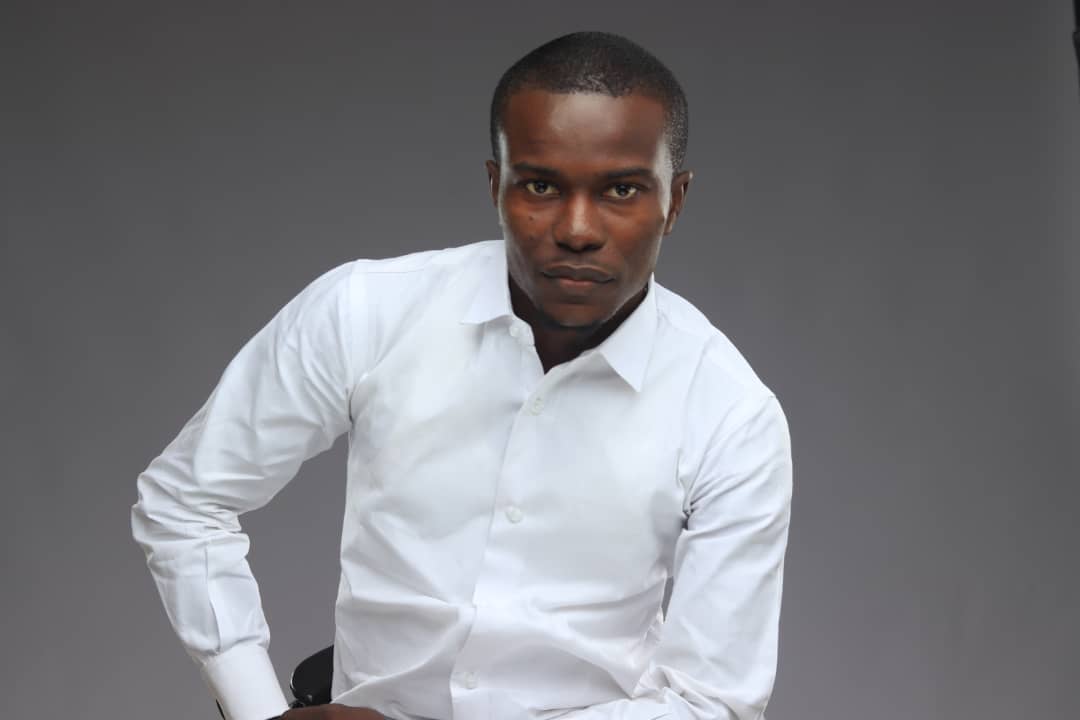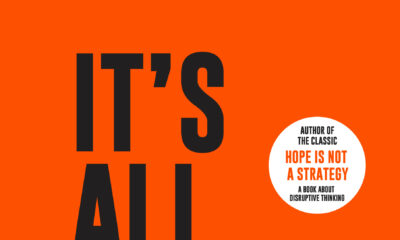Features
Mfonobong Inyang: Musings About a New Nigeria & the Fierce Urgency of Now

Last month, I attended a conference themed Disruptive Leadership In Critical Times. In one of the masterclasses, facilitated by a management genius, he shared very profound thoughts. He talked about many things including the dynamics of outcomes and output. One powerful anecdote that he extrapolated from his original discipline as a civil engineer was the correlation between vision and structure. Vision is a big picture and the structure is the machinery in play to deliver the vision. Here is the thing – a vision can outgrow its extant structure. The problem most times is that instead of people overhauling and scaling up the structure to meet up with the bigger vision, they scale down the vision to the level of the structure. There are obviously consequences for this type of backward behaviour.
Understand that structures, whilst important for carrying the weight of a vision are also, by their very nature, limiting. For example, no matter the size of the vision I have for my business, the organisational ‘structure’ determines how many people I can hire, what markets I can operate in and things like that. Even if I wish to have the greatest school in the world and have every child enrol therein, the building structure, to a large extent, determines the number of students that can physically seat in the classes. I can have the raw gift of rap but end up as an Ikorodu Jay Z because I don’t have the right structures to properly harness my abilities. How many billionaires can come from the Hov crib? I count three. Mr Carter isn’t a billionaire simply because he is a rap god, Rihanna isn’t a billionaire simply because she can sing and Ye isn’t a billionaire simply because he is a super producer – it’s more because they all have the right business structures. Bron is a Roc boy, so four, technically.
That’s where Nigeria comes in. On my way home from that conference, I had a light bulb moment. I began to develop those thoughts into different aspects including nation-building. It dawned on me that Nigeria is failing as a country simply because the corporate vision has outgrown the current structure but instead of restructuring the country to meet up with a larger vision, certain interests are hell-bent on scaling down the vision to accommodate the status quo. Many people see restructuring as a political conversation, it looks like politics but it’s more about development. Our refusal to restructure is costing us development.
How come for over 62 years, we find it easier to pay trillions for subsidies than to build functional refineries – which is the structure for adding value to our oil? Why are we complaining about insecurity but are not willing to evolve from a centralised security structure to a multi-level version? How come we say our debt servicing has outgrown our revenue in a fiscal year but we are neither willing to drastically cut down the cost of governance nor plug all the holes of mind-boggling corruption? Why do we call ourselves a federation but insist that states which should develop at their own pace, go cap in hand to the centre every month? How come we don’t have money to fund education but there is money for politicians to fritter away on the most ridiculous projects?
Resources without the right strategy or structure will inevitably lead to poverty. It’s no surprise that Nigeria was shamelessly the poverty capital of the world. Whilst poverty is a universal phenomenon, our current system is designed to produce more poverty. This explains why young people are harassed by law enforcement for being rich, driving a nice car or owning an expensive phone – even when it’s all legitimate simply because we have broken the 11th Commandment, “thou shall be poor”. This explains how we fell off from the days of “money is not the problem but how to spend it” to contemporary times where we are neck-deep in domestic and international debts. This is why politicians brag about having structures for winning elections but hardly about structures for development.
In engineering, stress is defined as σ =F/A0, where σ = unit(s) of stress, F = Force and A0 = sectional or axial area. Similar arguments apply to social engineering; there is ‘stress’ everywhere in the country because some interests insist on putting new wine in old wineskins. Young people are rightly most vocal against it; the Sòrò Sókè Generation are speaking up because of stress. They constitute the largest area in terms of demography and they are being forced to carry the dead weight of bad governance. Back and forth on this turnpike really took a toll on them, that’s why they are now on the streets and they want all the smoke. All this pain from the outside inspired all this growth within the political space. They feel as though they are being made to put a cap on their possibilities simply because some people are comfortable with the status quo.
Potential isn’t so much about the future; it’s really all that we can be but are yet to manifest. Nigeria’s future isn’t ahead of us; it’s inside of us, crying for release because the pressure is getting wesser. Campaigns are now in play and the usual suspects will repackage themselves because dem wan tell us another story again. Fool me once, shame on you. Fool me twice, shame on me. In developed countries, they hire the best to lead the rest. In under-developed countries, they hire the best to play second-fiddle and defend the indefensible. If you belong to the latter, you’re not a victim of bad governance but an accomplice. The lead partner at SBM Intelligence, Cheta Nwanze, would always say especially of the so-called intellectuals, “we use technicalities to justify nonsense”. Enough of this foofaraw and tomfoolery already!
We come on the timeline and call out teams for being mid, calling for the sack of non-performing coaches or substitution of lazy players. The irony is that we know the right things to do for football that has little or no influence on our lives. Yet, we justify incompetence in politics and governance, forgetting that elections have real-life consequences. I guess the moral of my story is that football is a game but politics affects your life, so don’t let anyone play games with your life. You need to vote in leaders that see you as actual human beings not mere political numbers to be weaponized for electoral purposes.
Fam, you will like good governance. Former President Olusegun Obasanjo admonished: “if you don’t see what you should see and do what you should do, you will become a victim of what you don’t like.” Old strategies won’t get us new results; you better follow who know road otherwise, dem go carry you go where you no know. We gather dey for dis country yet some people act as though they are more Nigerian than others. The Office of the Citizen requires you to collect your PVCs as soon as possible because this country needs more active citizens, not more activists. Those who allow themselves to be divided by religion and ethnicity during the electioneering season will be reunited in their poverty after the elections. Most of us are intimately aware of the use of divisive agendas but the bigotry of politics don cast for our side. Laslas, ethnoreligious propaganda go chop breakfast next year.
The stakes are too high in the next elections for me to sit on the fence; I have since become publicly partisan for the very first time in any election cycle. The G7 isn’t merely a group of friendly countries but an alliance of the most powerful economies on God’s green earth. One of the perks of having the world’s biggest GDP is that you can elect to ride in the Beast where everyone else takes the bus. The world doesn’t care if we describe ourselves as the giant of Africa, it only respects those with results. This and many more reasons are why I agree that our economy urgently needs to move from consumption to production. The game is the game but I will always keep its player.
To mark my birthday this October, amongst other things, I curated a book that documents my conviction about a new Nigeria. It’s absolutely free but the information therein is priceless. Read the tea leaves, 2023 won’t be a tea party. A perfect storm is brewing and no, it won’t be in a teacup. Those four people tweeting in a room are about to redefine the political landscape as we know it. Welcome to the new Nigeria, it’s a big rich town but we won’t get there by making bad choices such as choosing 50 cents over a dollar – my British friends call that being penny-wise but pound-foolish. Yes, we can. All things are possible when we work together as one.






















